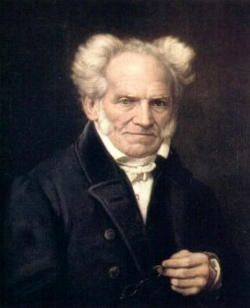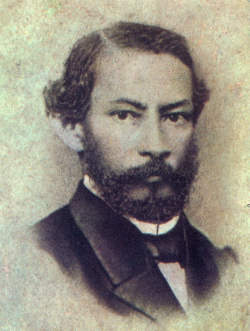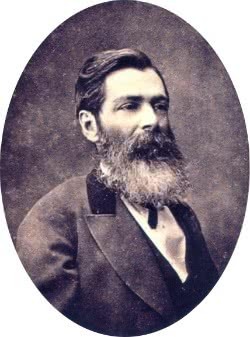Arthur Schopenhauer was a contemporary German philosopher who was known for his strong philosophical pessimism.
Biography

Arthur Schopenhauer was born in Danzig, present-day Poland, on February 22, 1788. His father was a businessman and his mother was a writer. By his father's influence, he was raised to be a businessman, a businessman.
At just 5 years old, the family moved to the city of Hamburg, Germany. A few years later they went to France, where Arthur began to study languages.
But it was on his travels that Schopenhauer began to philosophize about human existence and man's problems. He entered the Faculty of Commerce in Hamburg, but soon after dropped out.
Still undecided about his professional life, he enrolled in medicine at the University of Gottingen, also in Germany. Finally, he transferred the course to Philosophy in the city of Berlin.
Finally Arthur found himself in philosophy studies and later earned a doctorate in that area. Your thesis "The Fourfold Reason of the Sufficient Reason Principle” was written in 1813.
Committed to his philosophical ideas, he wrote one of his most emblematic works “The World as Will and Representation”, published in 1818.
Although it did not have a great impact when it was published, today it is considered one of the philosopher's main works and mandatory in several higher education courses.
Schopenhauer was invited to teach at the University of Berlin, however, his subjects were left empty. That's because he chose the same times as the classes of the German philosopher Hegel. With the cholera infestation in the city, he moved to Frankfurt.
There, he wrote more books, although this activity did not give him much financial return at the time. Therefore, Arthur lived to the end of his life on the inheritance he had inherited from his father's death.
He died in Frankfurt on September 21, 1860.
Main Works
- The World as Will and Representation
- Will in Nature
- Metaphysics of Love/Metaphysics of Death
- The Art of Making Yourself Respected
- The Art of Insulting
- the art of being right
- The art of being happy
- The Art of Dealing with Women
- Free Will
- pains of the world
Thoughts
Much of his philosophical theory was based on the thoughts of Immanuel Kant and his transcendental idealism.
In it, the essence of the world would be the result of each one's will to live. Furthermore, Schopenhauer served as an influence on the nihilistic philosophy of Friedrich Nietzsche.
On the other hand, he was critical of Hegelian thought in relation to idealism. Remember that Hegel he was the main exponent of German idealism and his philosophy was supported by the rationalist current.
In Schopenhauer's conception, the world would be full of representations created by the subjects. In this line, the essence of things would only be found through what he called “intuitive insight”, a type of lighting.
His philosophical theory addressed various topics related to human existence, suffering and boredom. Thus, according to the philosopher, life would oscillate from suffering to boredom and happiness would be momentary.
His studies were supported on several subjects, such as metaphysics, ethics, morals.
Love, according to the philosopher, was considered a necessary evil and, therefore, essential for procreation. In the philosopher's words: “Love is just the survival instinct of the species.”
Read more about Contemporary Philosophy.
Sentences
- “Who doesn't love solitude, doesn't love freedom either: only when you are alone is you free.”
- “The afternoon is the old age of the day. Every day is a little life, and every sunset a little death.”
- “Talent is hitting a target that nobody hits. Genius is hitting a target no one sees.”
- “This world is a hell for animals and we humans their demons.”
- “The clearer man's knowledge - the more intelligent he is - the more suffering he has; the man who is endowed with genius suffers more than all.”
- “Money is like seawater: the more you drink, the greater your thirst. The same applies to fame.”


